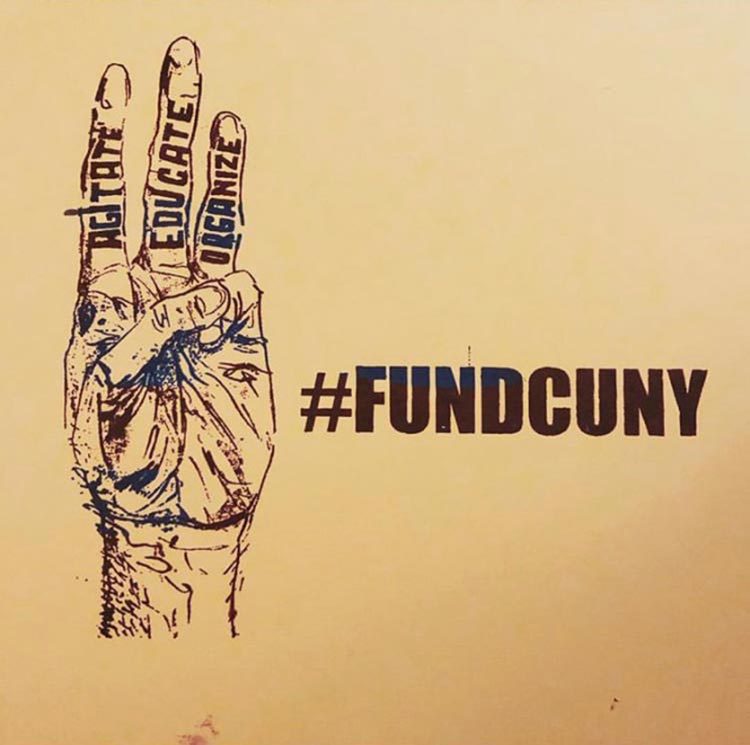EDITOR’S NOTE: Op-Eds detail the views of their writers and are not representative of the stance of the paper. Publication of Op-Eds is not tantamount to an endorsement of their content.
Visiting Albany with the Queens College New York Public Interest Research Group (NYPIRG) chapter for Higher Education Action Day on February 28 was rewarding.
On this day, we advocated on behalf of thousands of students. Assembly members and members of the Professional Staff Congress (PSC), CUNY Rising, and NYPIRG chapters, gave motivational speeches to students.
Khaleel Anderson, who represents the 31st district of the New York State Assembly (NYS), described the ongoing struggle for a free and fully funded CUNY and SUNY, through recounting his experiences as a Queens College undergraduate nine years ago — fighting for the very same cause. Anderson mentioned that when the shade of students and faculty members became darker at CUNY is when the budget went down.
Speaker Frederick Kowal, President of the United University Professions (the nation’s largest higher education union) gave an uplifting speech to which students in the room cheered estatically.
Kowal called out government officials, including New York Governor Kathy Hochul, claiming that her proposed plan to close SUNY Downstate Hospital demonstrates hypocrisy. This is because, while Hochul claims to value minority healthcare, the SUNY Downstate Hospital she wants to close serves minority women Kowal said.
Other speakers expressed similar concerns about CUNY and SUNY’s lack of funding, stating that as a student body, we should all be studying at the library right now rather than traveling to Albany to advocate for a New Deal for CUNY. The speakers also reminded us as students to advocate for the CUNY University Student Senate proposal of free MetroCards which would financially help students from across 25 CUNY campuses.
I had the opportunity to speak with Blair Horner, the Executive Director of NYPIRG, and ask him if he believes CUNY will ever be tuition-free, like it was until 1976.
“Public colleges should be tuition-free, but that is not a short-term strategy. Certainly, CUNY will never be free unless people demand it, and students who advocate for it increase the likelihood of a TAP program that covers tuition,” Horner said.
Afterwards, I went to meetings with officials Sam Berger and Nily Rozic, neither of whom were listed as sponsors of the New Deal for CUNY. The main platforms to advocate for were racial and economic equity, increasing state investment for CUNY’s New Deal, stabilizing and increasing funding to SUNY campuses and community colleges, stopping the Governor’s closure plan for SUNY downstate hospital, reforming Tuition Assistance Program (TAP) and other aid, restoring student support programs, and investing in infrastructure.
Group 20 and I met with Berger’s representative, Rachel, who kept asserting that Berger is in the research phase when we asked her about his stances on numerous policy proposals within the bill. As I focused my attention on the large TV in his room, it became clear that Berger may be stuck on research for such an extended period of time — due to the video game controller placed by the television.
We went to Assembly Member Rozic’s office and met with Lisa, her legislative assistant. Lisa mentioned that Rozic not sponsoring the bill is not a sign that she does not support it. According to Lisa, Rozic is cautious because a bill can be completely changed after a few amendments, resulting in a totally different bill when it reaches the floor. This is true.
A student in my group mentioned that they once had to choose between eating lunch and paying tuition, which inspired me to share my own personal struggles as a QC student. I discussed that with the high rates of inflation for food options at QC, as well as the inadequate counseling services offered, I found myself in a precarious situation my freshman year — a few months after my mother passed away.
Tasha Jeffers, a sophomore Political Science major at QC, expressed frustration with Search for Education, Elevation and Knowledge (SEEK) cuts (SEEK is designed to reach qualified equity-deserving high school graduates.)
“As a SEEK student and member of NYPIRG, I had to take the opportunity to advocate for the students on campus. The tutoring, MetroCard, and SEEK teachers’ budgets have all been reduced. It saddens me that the SEEK department’s cut was so severe this summer that they were unable to enroll 500 low-income minority students who needed support,” Jeffers said.
It was empowering for us as students to speak out on Higher Education Action Day in support of a fully funded CUNY and to bring attention to the numerous inequities happening at our college, like the firing of 26 professors just before the Spring 2024 semester.











